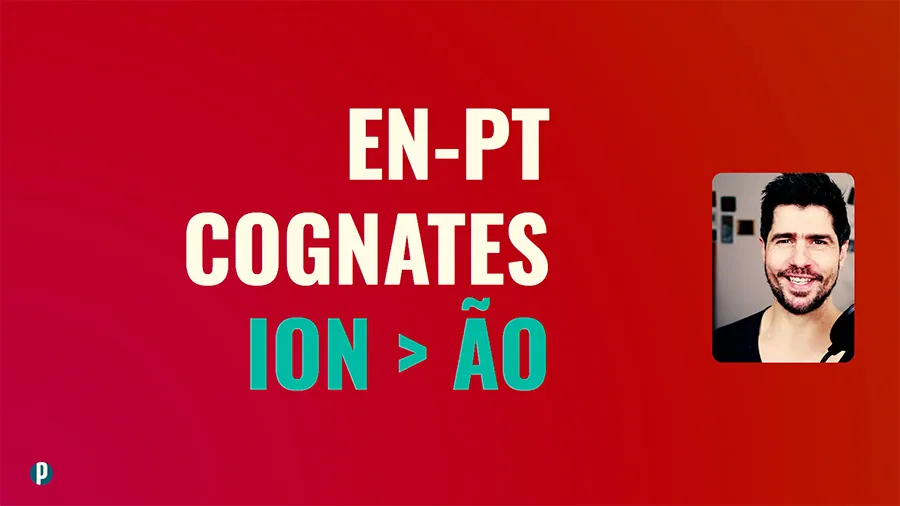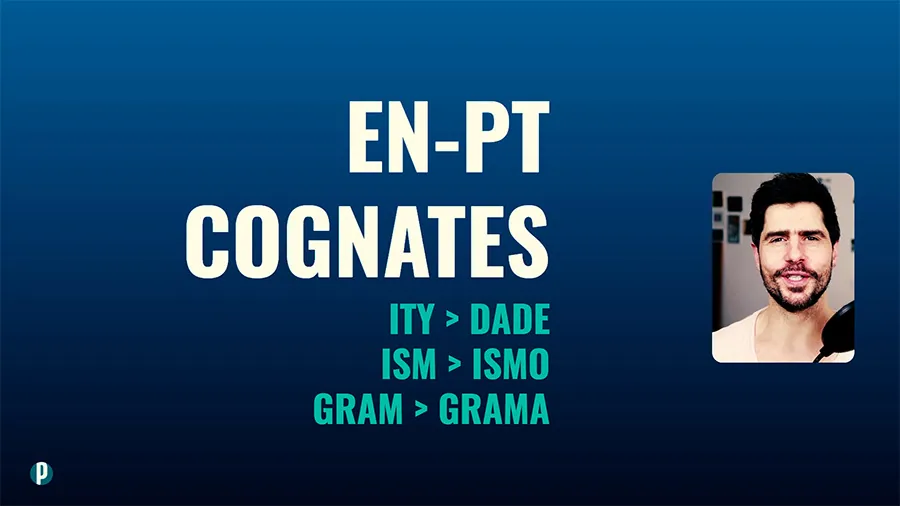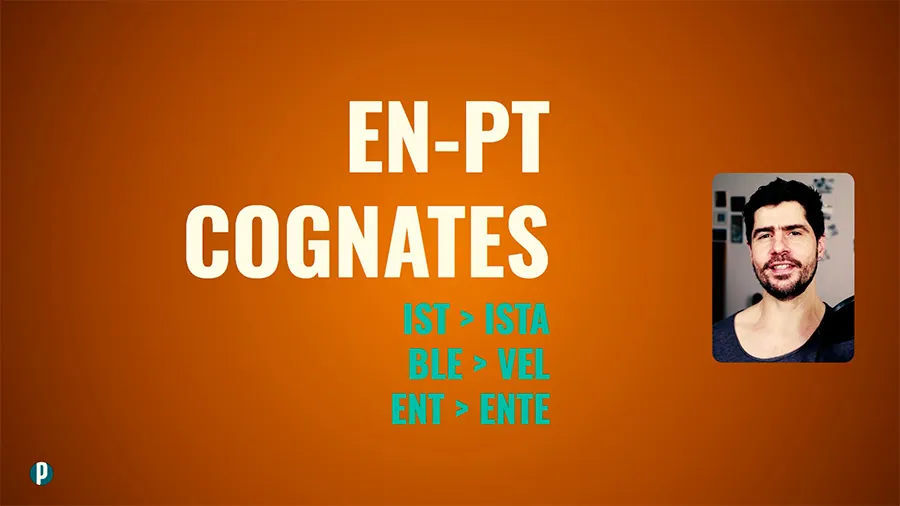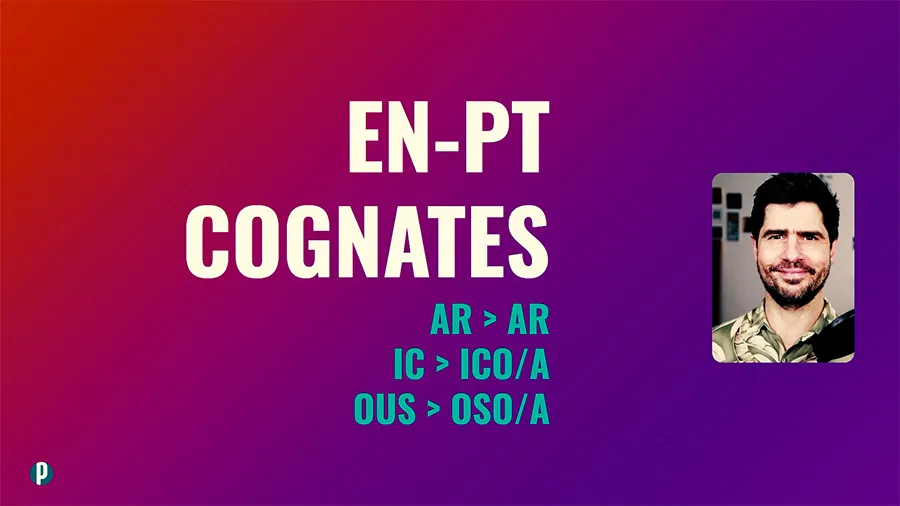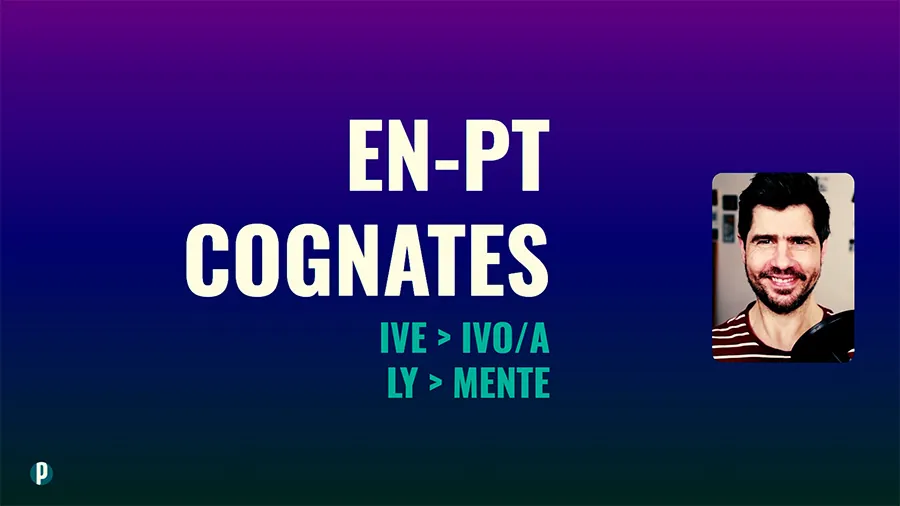Portuguese-English Cognates: Boost Your Portuguese Vocab Overnight
Here you are, learning a new language and probably assuming you are starting from ground zero. What if that’s not the case at all? What if you are more acquainted with Portuguese than you realize?
In this article, I will show you a powerful hack to grow your Portuguese vocab rapidly.
See, if you are familiar with English, you already know thousands of Portuguese words! Let me elaborate. Cognates, specifically English-Portuguese cognates, create a considerable vocab overlap between these two languages.
Cognates?
Cognates are words that look similar on both ends while sharing the same meaning (due to a common root). English and Portuguese share thousands of words stemming from either Latin or Greek.
Spanish speakers! Read an analogous article concerning Portuguese-Spanish cognates: Portuguese-Spanish Cognates and False Friends.
Not all cognates are made equal. While many cognates share their meaning, there are instances where the semantic overlap is imperfect. For instance, words that are closely related but are nonetheless used in slightly different ways. Also, there are cognates whose meanings have largely drifted apart with time, so much so that they’ve become so-called false cognates, also known as False Friends.
Noun cognates
ion > ão
This group is the largest within the noun category. Due to slight variations in the spelling patterns, it can be divided into three subgroups.
Common to all the subgroups: nearly all Portuguese cognates are feminine words. Also, all these cognates are stressed on the last syllable and produce a nasal diphthong sound (indicated by the tilde accent).
Let’s look into each subgroup and its cognates:
tion > ção
This subgroup comprises English nouns ending with –tion and their Portuguese counterparts with -ção. Here are some examples:
| …tion | …ção |
| station | a estação |
| nation | a nação |
| animation | a animação |
| alteration | a alteração |
| education | a educação |
| assimilation | a assimilação |
| introduction | a introdução |
| operation | a operação |
| . . . | . . . |
sion > são
The cognates in this subgroup take the endings -sion and -são on the English and Portuguese ends respectively.
Note that the endings –ção (previous subgroup) and –são produce different consonant sounds, namely, an unvoiced sibilant (as in simple) and a voiced one (as in zebra) respectively. A few examples:
| …sion | …são |
| division | a divisão |
| transfusion | a transfusão |
| conclusion | a conclusão |
| invasion | a invasão |
| aversion | a aversão |
| dimension | a dimensão |
| precision | a precisão |
| confusion | a confusão |
| . . . | . . . |

Olá! I'm Pedro and I'm your Portuguese teacher.
Ready to unlock the beauty of European Portuguese? Portuguesepedia is your key! This all-in-one platform provides a wealth of learning resources, from bite-sized video lessons to immersive idiomatic dips. Perfect your pronunciation and aural comprehension with listening drills and solidify your grammar with in-depth articles. Start your Portuguese journey today!
Share this article
Get my guide "Key Strategies to Learn Portuguese" for FREE.

